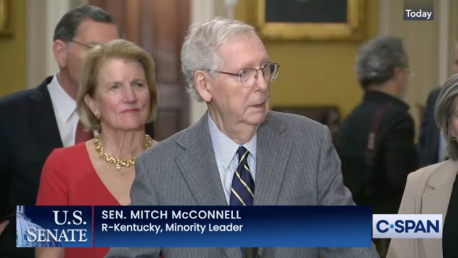It is Christmas Eve, and my dog Dasher is sleeping by my side on my office recliner as I type, and when he briefly wakes up to reposition himself, he does not snarl at Maga, the kitty, a yard away on my digital piano’s keyboard, also asleep. Something like a Peaceable Kingdom. And instead of watching a movie I am writing about what a good year in movies it was — thirty years ago.
The occasion is Jesse Walker’s annual review of the year in movies, peeling it back decade by decade from each new current year. He just got to 1993. And what a year it was.
For one thing, I think that is the year that Jesse moved to Port Townsend, and we may have watched several of these together. Perhaps at the newly opened Rose. Be that as it may, or may not, here is his list from his blog:
1. Short Cuts
Directed by Robert Altman
Written by Altman and Frank Barhydt, from stories by Raymond Carver
2. Groundhog Day
Directed by Harold Ramis
Written by Ramis and Danny Rubin
3. A Perfect World
Directed by Clint Eastwood
Written by John Lee Hancock
4. The Nightmare Before Christmas
Directed by Henry Selick
Written by Caroline Thompson and Michael McDowell, from a story by Tim Burton
5. Thirty Two Short Films About Glenn Gould
Directed by François Girard
Written by Girard, Don McKellar, and Nick McKinney
6. Latcho Drom
Written and directed by Tony Gatlif
7. Fearless
Directed by Peter Weir
Written by Rafael Yglesias, from his novel
8. Manhattan Murder Mystery
Directed by Woody Allen
Written by Allen and Marshall Brickman
9. Dottie Gets Spanked
Written and directed by Todd Haynes
10. True Romance
Directed by Tony Scott
Written by Quentin Tarantino
Jesse’s “Honorable Mentions”:
11. The Bed You Sleep In (Jon Jost)
12. Red Rock West (John Dahl)
13. Mad Dog and Glory (John McNaughton)
14. The Scent of Green Papaya (Tran Anh Hung)
15. The Wrong Trousers (Nick Park)
16. The Wonderful, Horrible Life of Leni Riefenstahl (Ray Müller)
17. Body Snatchers (Abel Ferrara)
18. The Junky’s Christmas (Nick Donkin, Melodie McDaniel)
19. The Hour of the Pig (Leslie Megahey)
20. Blue (Krzysztof Kieslowski)
Taste being what it is, non-est-disputandable-and-all, my preference-ordered list looks a little different:
- Blue (Krzysztof Kieslowski)
- Short Cuts (Raymond Carver, Frank Barhydt, Robert Altman)
- Groundhog Day (Danny Rubin and Harold Ramis)
- The Scent of Green Papaya (Tran Anh Hung)
- Thirty Two Short Films About Glenn Gould (Don McKellar, Nick McKinney, François Girard)
- Fearless (Rafael Yglesias, Peter Weir)
- The Fugitive (Jeb Stuart, David Twohy, Andrew Davis)
- The Wrong Trousers (Nick Park)
- A Perfect World (John Lee Hancock, Clint Eastwood)
- Schindler’s List (Steven Zaillian, Steven Spielberg)
- Red Rock West (John Dahl)
- True Romance (Quentin Tarrantino, Tony Scott)
I have not seen all the movies that Jesse lists. And I do not scorn Schindler’s List like he does, nor do I think that the crowd-pleaser The Fugitive is a worse movie than, say, Red Rock West. It’s a perfectly made bit of pure Hollywood fluff, and deserves some honor. The Firm, from that year, arguably is better than True Romance, which just squeaked onto my list. While in memory True Romance is too quirky by half, and ultra-violent, so not necessarily to my taste, it is still Tarrantino, and I remember how much I liked it at the time. Blue, on the other hand, is one of my all-time favorite films, and I have watched it many, many times since, which I cannot say about Short Cuts or Thirty-Two Short Films About Glenn Gould.— or most of the films on even my list, excluding Groundhog Day and Fearless.
The best way to know what your favorite movies are is how many times you have seen them, right? That is why Blue has to be on top — and True Romance at the bottom — of my Top Twelve.
And if you wonder why a Top Twelve and not a Top Ten — this is in part about the great film stars, no? Think zodiacal; think twelve. Though neither Jesse nor I list the stars that stood out in these films, in most of these the actors had a great deal to do with it. Juliette Binoche, Bill Murray, Andie MacDowell in two of the films, almost every actor in Short Cuts — talk about great performances! And in True Romance we have Christian Slater’s best role, and great performances by Patricia Arquette, Gary Oldman, Christopher Walken, Val Kilmer, and many, many others.
I would have to watch Manhattan Murder Mystery again to place it on any list. I remember liking it, but remember not one other thing about it. I am pretty sure I have watched it twice, but if I remember nothing, it does not seem a likely candidate for any Tops list.
Also, one of the charms of Jesse’s lists-in-review is that he often includes TV Series as films. And in 1993 The X-Files series debuted. But it was in its second season that it got great. But in 1993, the greatness of the sitcom Seinfeld became obvious to the general public, so a mention there might be a good idea. So that is about all I can do for an “Honorable Mention” portion of the list.
twv














